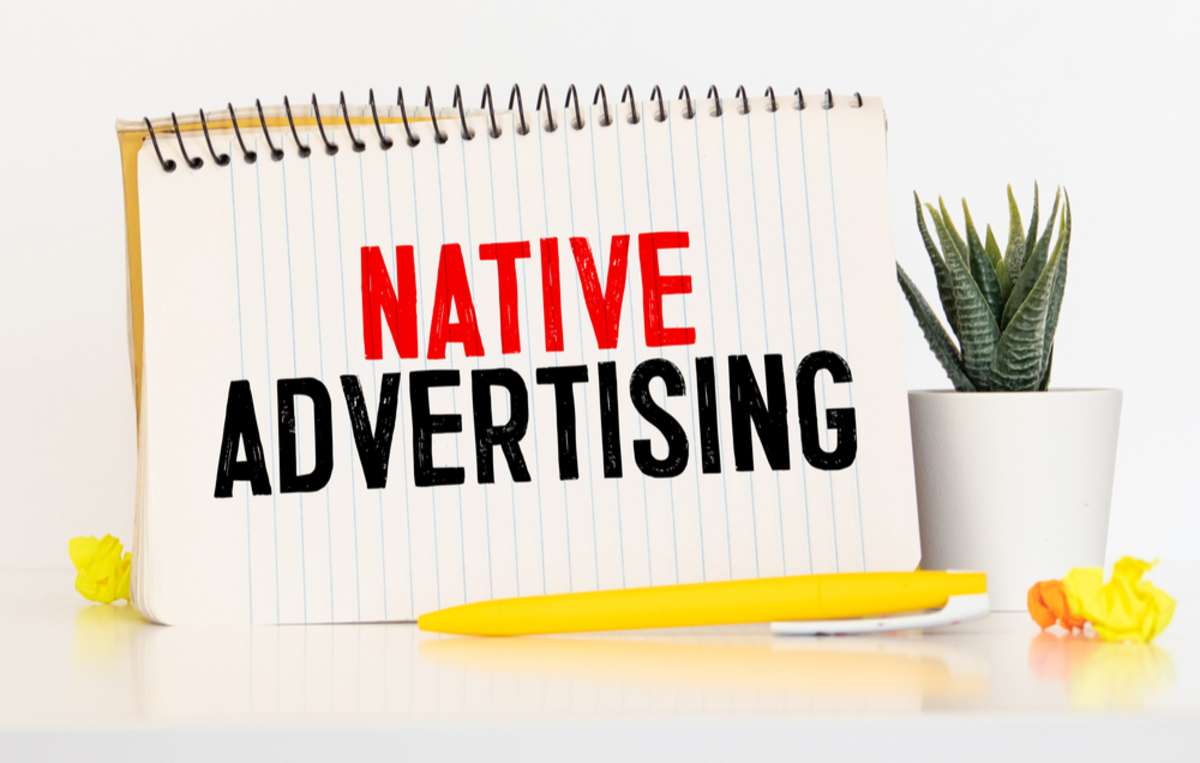
Contextual vs. Native Pay-Per-Click Advertising: Which is Best?
Listen to the article
Contextual vs. Native Pay-Per-Click Advertising: Which is Best?
Real estate businesses should take advantage of online advertising to generate more traffic. Internet advertising has incredible advantages over other traditional forms of outbound marketing. Chief among them is that they can be extremely targeted and cost-efficient, as pay-per-click advertising (PPC ads) only charges the marketer when someone clicks on the ad.
That being said, your business can use many different types of online advertisements. Two of the most prominent are "contextual" and "native" advertising. Keep reading to learn more about each one and when to use them for your real estate business.
 What Is Contextual Advertising (and How Does It Work)?
What Is Contextual Advertising (and How Does It Work)?
Contextual advertising appears to online users based on the content they've navigated to or searched for. This is a popular form of pay-per-click advertising (like Google ads) that takes search data and matches it with an ad based on the relevance of that search.
Contextual advertising may also show advertisements that are related to older searches. This explains why you might start seeing ads for products or services similar to something you've researched online.
For real estate businesses, using these ads can place your business in front of users looking for real estate agents or brokers in your market (even if they had no idea about your services when they started searching online).
What are the Pros and Cons of Contextual Advertising?
One of the "pros" of contextual ads is they are easy to create. They're also highly targeted and allow you to immediately evaluate if your advertising campaign has been successful.
In addition, these ads usually come with detailed analytics and reports enabling you to see what works and what doesn't. You can often run A/B testing to see if one version of the advertisement is better than another.
However, customers may feel lied to if an advertisement isn't transparent enough or clearly noted as an "ad" within the content or on a search engine results page. Furthermore, creating effective native ads can be complex and more time-consuming than contextual ads.
Furthermore, contextual ads will stop the second you reach your budget. While this increases control, you'll lose an ad — even a good one — once you reach your budget.
 What Is Native Advertising (and How Does It Work)?
What Is Native Advertising (and How Does It Work)?
Native advertising is an "in-feed" ad that fits with the content itself. You might also see these ads blended within content, like a blog or news article, and can be relatively indistinguishable from other words, pictures, or videos the end user is consuming. Examples include ads in our social media news feeds or search engine results at the top of the feed.
What are the Pros and Cons of Native Advertising
Native ads are usually less expensive than billboard or banner ads. This is because they integrate so smoothly with content that it makes it easy for users to see these ads and think they are just scrolling through their news feed or your page. Furthermore, these ads can increase customer sentiment and brand awareness, ultimately driving more customers to your business.
However, customers may feel lied to if an advertisement isn't transparent enough or clearly noted as an "ad" within the content. Furthermore, creating effective native ads can be complex and more time-consuming than contextual ads.
Which Type of Pay-Per-Click Advertising Is Best for Your Real Estate Business?
This decision can be difficult and ultimately depends on your goals and inbound marketing strategy.
- Are you looking to build brand awareness or drive prospective customers to an eligible listing?
- Are there relevant keywords that you can use in your area?
- Does your real estate firm have marketing resources to help you create a campaign?
Here are a few tips for choosing the best ads for your company's growth!
How To Choose the Ideal Pay-Per-Click Ads
Answering a few questions and working with the right inbound marketing experts can help you choose the best ads for your budget and goals. Smart questions to ask and answer include:
- What is your budget?
- What is your expertise, and do you have access to additional resources that can help you create an impactful ad campaign?
- Who is your demographic, and where do they spend their time online?
- What has worked in your area in the past?
There's no need to overthink it, but starting your process with a good assessment of your goals and budget to drive your decisions is crucial.
Tips for Successful Contextual or Native Pay-per-Click Advertising
Once you've decided on your approach, keep a few things in mind when launching any inbound marketing ad campaign, including:
- Engage in A/B testing that will allow you to better determine what works and doesn't.
- Use every analytic tool at your disposal to improve future campaigns.
- Start slow. Create a small budget, and increase that budget as you get more comfortable and successful as the need grows.
- Make sure that any form of advertising — contextual, native, or otherwise — match your pre-existing campaigns. Having a consistent advertising message can enhance your brand awareness.
Again, you may want to consider relying on one of the best inbound marketing agencies to help you determine what form of advertisement works best for you. Doing the necessary keyword research, understanding your desired demographics, and correctly choosing the most efficient form of advertising can be tough.
In those instances, an inbound marketing group can help you manage any of these pre-steps or completely handle a campaign. This is particularly important for your real estate business, which relies extensively on the internet to get new customers.
Our Inbound Marketing Agency Can Help Optimize Your PPC Ads
Geekly Media partners with businesses and help them manage any form of inbound marketing or pay-per-click advertising. Our experts can help you determine the ideal type of ad campaign and maximize your budget to drive more traffic to your business website!
Learn more about PPC ads when downloading our free resource, "Paid Ads: Definitive Guide for Any Business."




-1.png)